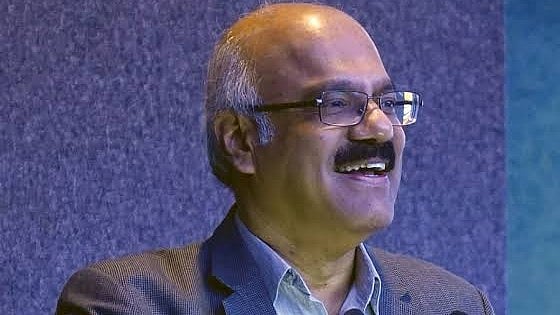
Dr D Nageshwar Reddy.
Credit: X/@ncbn
Hyderabad: Renowned gastroenterologist and medical entrepreneur Dr Duvvur Nageshwar and popular Tollywood actor Nandamuri Balakrishna were among the seven Telugus from Telangana and Andhra Pradesh that the Centre on Saturday announced Padma awards to be awarded to.
While Dr Nageshwar Reddy was conferred with the country's second highest civilian award, Padma Vibhushan, actor Balakrishna was conferred with Padma Bhushan. Incidentally, Balakrishna recently completed 50 years in cinema.
Other Padma awardees from Telugu states are Dalit leader Manda Krishna Madiga from Telangana, Telugu pandit Madugula Nagaphani Sarma, K L Krishna, Vaddiraju Raghavendracharya Panchamukhi, and Miriyala Apparao (posthumously) from Andhra Pradesh (conferred with Padma Shri).
Dr Nageshwar Reddy is the chairman and founder of the Asian Institute of Gastroenterology (AIG) at Hyderabad, the biggest gastroenterology hospital in the world. He received the Padma Shri in 2002 and Padma Bhushan in 2016.
An elected fellow of the National Academy of Medical Sciences, he was given the world's highest gastroenterology award in Shanghai, China, at a function held in September 2013. He was conferred with the Rudolf V Schindler Award, the highest category in the prestigious Crystal Awards named after Schindler, who is considered as “the father of gastroscopy” by the American Society of Gastrointestinal Endoscopy (ASGE).
The sixth son of legendary actor and former Chief Minister of Andhra Pradesh N T Rama Rao, Balakrishna, 64, made his debut as a child artist at the age of 14 with the film Tatamma Kala in 1974. He is also the brother-in-law of current chief minister of Andhra Pradesh N Chandrababu Naidu. Balakrishna is also a three-time MLA from Hindupur constituency in Anantapur district. He acted in more than 100 movies and received three state Nandi awards for best actor.
Manda Krishna Madiga, a Dalit leader from Telangana, has fought for three decades to sub-categorise Scheduled Castes (SCs) and Scheduled Tribes (STs) for reservations in education and employment.
Not many social movements in independent India's history sustained for as long as three decades.